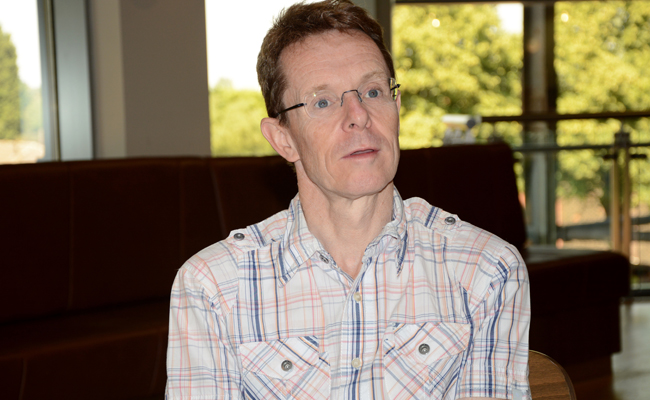West Midlands organisations to take more than 50 actions to root out regional health inequalities

Birmingham: Organisations across the West Midlands have pledged to take more than 50 actions to help put an end to health inequalities in the region.
A recent report by the West Midlands Combined Authority in conjunction with public health officials, entitled ‘Health of the Region 2020: The regional health impact of Covid-19 on the West Midlands’, found there were entrenched health inequalities in the region, that had been both exposed and exacerbated by the Covid-19 pandemic.
Findings from the report include:
- People living in the WMCA region have a shorter life expectancy than England overall, and spend more of their lives in poor health.
- The rate of premature deaths from preventable causes (such as cardiovascular disease, cancer, liver disease and respiratory disease) is higher than the national average, as is the rate of infant mortality. It is believed these correspond to higher rates of problem drinking, obesity (child and adult) and physical inactivity, as well as lower cancer screening.
- Most areas in the WMCA region have a greater level of socioeconomic deprivation than the national average, with approximately a quarter of children living in low income households. The report concluded that health inequality is linked to wealth inequality.
- The highest rates of COVID-19 related deaths have come in more deprived areas, and neighbourhoods with a greater proportion of residents from Black, Asian, and Minority Ethnic (BAME) communities. A recent PHE report found that those in BAME groups were up to twice as likely to die from Covid-19 than those from the White British ethnic group.
In response to the report’s findings the WMCA, alongside other public sector organisations in the region, have pledged to take immediate action including:
- The new multi-agency Midlands System Transformation Recovery Board to carry out an evaluation of regional NHS programmes, including examining inequalities and impacts of COVID-19 on BAME communities.
- WMCA to develop a targeted Thrive mental health programme co-designed with BAME employees and employers.
- Sandwell and West Birmingham NHS Trust committed to deploying a minimum 2% of its future annual budget with local suppliers and to paying all staff at or above the ‘living wage’.
- Black Country and West Birmingham CCG developing new projects to widen access to health and care including early diagnosis of cancer in vulnerable groups.
- WMCA to provide training and support to health care professionals so they can refer disabled residents to physical activity as part of the IncludeMe initiative.
- Black Country Consortium supporting a campaign to ‘prescribe’ a range of community activities to people to support them to live healthier lives, and will support a whole system approach to reduce childhood obesity.
- Coventry University and University Hospitals Coventry and Warwickshire (UHCW) making plans to develop a community diagnostics centre in the city centre that would improve access to health facilities for the local community.
- WMCA to work with partners to become a Marmot City-Region and develop a three year action plan to reduce health inequalities.
The 50 plus actions were discussed and agreed by council leaders across the West Midlands at the WMCA’s board meeting last Friday (13th November).
Andy Street, the Mayor of the West Midlands said: “I want to thank everybody who contributed to this report, including the NHS, universities, and voluntary sector organisations, and we must now use it as a catalyst for change for good across the West Midlands.
“The Health of the Region report makes for uncomfortable reading, but we must not shy away from its findings. There is a clear, long-standing issue with health inequalities in the region that must be addressed, and I am pleased that the WMCA is taking immediate action alongside other public sector organisations to begin to rectify this.”
Dr Lola Abudu, Public Health England’s West Midlands director for health and wellbeing and a member of the report’s task and finish group, added: “The COVID-19 pandemic has exacerbated the health inequalities in our region, and therefore amplified the need for public health partners to tackle the wider determinants such as low income, employment and job security; adequate accommodation and homelessness; substance misuse and mental health issues. People dealing with these issues are more likely to make lifestyle choices that put them at risk of chronic conditions such as type 2 diabetes, high blood pressure, cardiovascular disease, lung diseases, strokes and certain types of cancer – burdens on our population and on our NHS. It has therefore never been more important to address these inequalities, at a time when the whole population is under increased risk from COVID-19.”
Research for the report, which was originally commissioned before the pandemic struck but was subsequently widened and extended to include the effects of Covid-19, took into account evidence put forward by the public, health care providers, businesses and other organisations about how the pandemic had impacted on their lives and operations.
As well as the actions being taken locally, the report, makes several recommendations to Government including the need for a clear and comprehensive action plan setting out how it will work with local and regional partners to act on race disparities and associated risk factors.
The report also calls on Government to double the proportion of health and social care spending allocated to prevention and public health from 5 per cent to 10 per cent.
It also asks the Government to do all it can to close the gap in primary care provision between the most and least deprived neighbourhoods in terms of funding per patient and serving GPs and to invest in the WMCA’s Radical Health Prevention Fund to drive forward innovation and social prescribing initiatives in the region
Cllr Izzi Secombe, WMCA portfolio lead for wellbeing and leader of Warwickshire County Council said: “This is a report that was written in collaboration with a number of organisations and is about life chances and how they affect people in the West Midlands.
“This document was not written to sit on a shelf and collect dust because the recommendations made in it can be embedded into policies that affect of all of the region.”
Another action to be taken by the WMCA in response to the report includes a pledge to encourage more cycling and increasing the number of transport journeys made by bike from three per cent to five per cent by 2023.
Among the other actions to be taken by partner organisations across the region are:
- A health and wellbeing strategy for staff at the Dudley Group NHS Foundation Trust
- University Hospitals Birmingham putting in place measures to enable people to access healthcare and information in a more accessible way such as through local neighbour hubs
- A pledge from West Midlands Police to recruit 1,000 more officers from a BAME background over the next three years.
A copy of the full report and the 50-plus actions can be viewed here https://www.wmca.org.uk/





